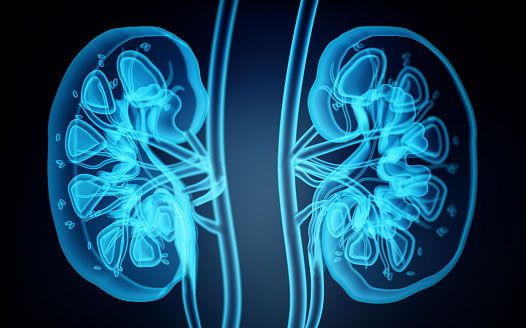Most of us don’t think about our kidneys on a daily basis, as we may think about our hearts or our lungs—both of which we actually feel functioning on the regular. However, every day, our kidneys are working double time to eliminate excess fluid and waste from our body, and are vitally important to ensure that our electrolytes and pH are balanced.
What’s more, they help our bodies maintain a normal blood pressure. During National Kidney Month, it’s worthwhile to take a few moments to consider what we can do to help preserve the function of these important, (and underappreciated), vital organs.
As we age, our kidney function naturally declines. We don’t notice this because the ability to make urine is one of the last functions the kidney loses.
In general, chronic medical conditions such as heart disease, vascular disease, diabetes, and high blood pressure, can affect how well the kidneys act to filter waste from our body. The better people control these chronic medical conditions, the more likely they are to delay chronic kidney disease.
So what can you do?
Staying appropriately hydrated mostly by drinking water is a good first step.
If your urine looks dark or cloudy, this could be a sign that you are not drinking enough water. However, it is important to ask the advise of your primary care provider to make sure that you do not drink too much fluid that could worsen other medical conditions.
What is good for your body is also good for your kidneys.
Eating a healthy diet with fresh fruits and vegetables, lean protein, whole grains, and avoiding processed foods high in sodium and other preservatives is a great start.
Check your blood pressure.
If you have high blood pressure or it runs in your family, check your blood pressure and ask your doctor or provider about what you can do to achieve good blood pressure control. High blood pressure can hurt your kidneys.
What are some common kidney conditions?
Many conditions that urologists treat can affect kidney function. For example, kidney stones are very common and can cause damage to the kidneys by blocking the flow of urine from the kidney to the bladder. Urologists treat stones both surgically (using small telescopes to remove them) and medically, by performing a metabolic evaluation to understand why an individual forms kidney stones and make recommendations to prevent them in the future.
Many men and women suffer from problems emptying their bladder and if it becomes a chronic problem, pressure can build in the bladder and travel upwards towards the kidney hurting their function.
Our team of urologic surgeons have the expertise to identify why the bladder is not functioning well and offer solutions that can help.
To learn more about our urology program, please visit: https://www.msmc.com/medical_care/urology/urology-program-overview/.



